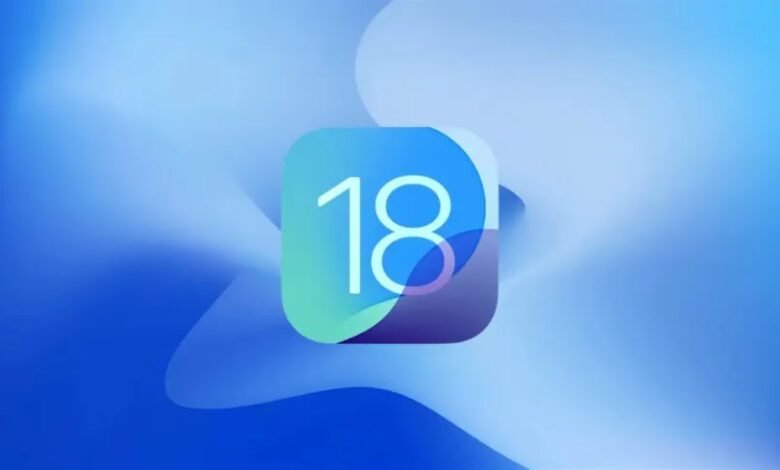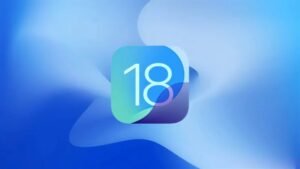iOS 18 Update: Why It’s a Game-Changer

The tech world is abuzz with anticipation as Apple prepares to unveil its latest software marvel: iOS 18. With each new iteration, Apple has consistently pushed the boundaries of what we expect from our mobile devices, and iOS 18 promises to be no exception. This update is poised to be a game-changer, setting new standards in mobile technology and user experience. But what makes iOS 18 stand out in a sea of updates? The answer lies in its groundbreaking features, enhanced performance, and a renewed focus on user privacy and customization.
From the moment the first iPhone hit the market in 2007, Apple has been at the forefront of innovation, redefining our relationship with technology. Each iOS update has built upon this legacy, introducing transformative changes that have shaped the mobile landscape. With iOS 18, Apple is once again poised to revolutionize the way we interact with our devices, blending cutting-edge technology with seamless user experiences.
One of the most anticipated features of iOS 18 is its advanced artificial intelligence (AI) integration. Apple has always been a pioneer in incorporating AI to enhance user experience, and iOS 18 takes this to the next level. The update introduces a more intuitive and responsive Siri, capable of understanding and executing complex commands with unprecedented accuracy. This leap in AI capability extends beyond Siri, permeating various aspects of the operating system to offer personalized and intelligent suggestions, from app usage to lifestyle tips, making your iPhone not just a device, but a smart companion.
In addition to AI advancements, iOS 18 brings significant improvements in performance and efficiency. Apple has focused on optimizing the system to deliver faster and smoother performance, even on older devices. This means longer battery life, quicker app launches, and a more responsive interface, ensuring that users can enjoy a high-performing device for years to come. These enhancements are particularly crucial as Apple continues to support a wide range of devices, extending the lifecycle of its products and offering users the best possible experience regardless of their device model.
Privacy has always been a cornerstone of Apple’s philosophy, and iOS 18 strengthens this commitment with new and enhanced privacy features. In an age where data security is paramount, Apple is doubling down on protecting user information. The update includes more robust privacy controls, giving users greater transparency and control over their data. Features like Mail Privacy Protection, App Tracking Transparency, and a new Privacy Dashboard empower users to understand and manage how their information is shared and used, setting a new standard for privacy in the mobile industry.
Customization is another area where iOS 18 excels. Recognizing that no two users are the same, Apple has introduced a plethora of customization options to make each iPhone truly unique. From redesigned widgets and personalized home screens to advanced themes and icon packs, iOS 18 offers a level of personalization that allows users to tailor their devices to their individual tastes and preferences. This emphasis on customization ensures that the iPhone is not just a tool, but a reflection of its user’s personality and lifestyle.
Moreover, iOS 18 heralds a new era of connectivity and ecosystem integration. With enhanced interoperability across Apple’s suite of devices, users can enjoy a seamless and unified experience. Features like Universal Control, improved AirDrop, and expanded Handoff capabilities enable a fluid transition between iPhone, iPad, Mac, and even Apple Watch, ensuring that your digital life is interconnected and streamlined like never before.
As we stand on the cusp of this exciting release, it’s clear that iOS 18 is more than just an update; it’s a transformative leap forward. By combining groundbreaking AI, enhanced performance, robust privacy features, extensive customization, and unparalleled ecosystem integration, iOS 18 is set to redefine our expectations of what a mobile operating system can achieve. This update not only solidifies Apple’s position as a leader in innovation but also promises to enrich the lives of millions of users worldwide, making iOS 18 truly a game-changer in every sense of the word.
When will iOS 18 be released?
iOS 18 was announced on June 10, at WWDC 2024. The first developer beta was made available immediately after the keynote and will be followed by the official public release in September.
Here’s a summary of recent iOS release dates:
- iOS 17: September 17, 2023;
- iOS 16: September 12, 2022;
- iOS 15: September 20, 2021;
- iOS 14: September 16, 2020;
- iOS 13: September 19, 2019;
- iOS 12: September 17, 2018.
Which devices will be compatible with iOS 18?
We often have to wait and see which one is compatible with the new version of iOS.
Please note that iOS 18 will be supported by all devices available on iOS 17. Yes, naturally, there is a difference in how many functions you can use that do not offer data on the operating system be insured for all the following models:
- iPhone 15;
- iPhone 15 Plus;
- iPhone 15 Pro;
- iPhone 15 Pro Max;
- iPhone 14;
- iPhone 14 Plus;
- iPhone 14 Pro;
- iPhone 14 Pro Max;
- iPhone 13;
- iPhone 13 mini;
- iPhone 13 Pro;
- iPhone 13 Pro Max;
- iPhone 12;
- iPhone 12 mini;
- iPhone 12 Pro;
- iPhone 12 Pro Max;
- iPhone 11;
- iPhone 11 Pro;
- iPhone 11 Pro Max;
- iPhone XS;
- iPhone XS Max;
- iPhone XR;
- iPhone SE (2 generations);
- iPhone SE (3 generations).
What will be the new features of iOS 18?
Apple has been caught by surprise by the rapid rise of AI tools like ChatGPT, Google Bard, Gemini, and Microsoft Copilot.
Even the most direct competitors such as Samsung have started to introduce AI into the operating system and applications so Apple has found itself forced to run for cover at great speed, working on a vast range of new artificial intelligence features for iOS, which will be branded as “Apple Intelligence”.
Many of Apple’s AI tools will be optional, according to Bloomberg, precisely because Apple cannot guarantee the maximum level of privacy it usually offers.
A report by Mark Gurman detailed that Apple “will not force users” to use these AI features if they don’t want to.
Here is a summary of the expected news:
- A renewed version of Siri, more intelligent and capable of exploiting a new AI system that incorporates the technology of large language models. However, many of the biggest improvements to Siri aren’t expected until 2025;
- AI integration in the Messages app that can answer questions and automatically complete sentences;
- The ability to summarize incoming messages, notifications, Safari web pages, emails, and more;
- Reply suggestions to automatically create complete replies to emails and text messages on your behalf;
- New AI features for Apple Music to create auto-generated playlists;
- Integrating generative AI into iWork apps, including Keynote and Pages;
- Adding generative AI capabilities to Xcode to help developers write new applications faster;
- New features for the Photos app, allowing users to enhance images, remove people and objects from photos, and more;
- New AI features for Voice Memos, including automatic transcription of audio files;
- The ability to generate custom emojis using AI. This feature will create new emoji icons related to what the user is typing. Bloomberg says the system can update in real-time as the user types words into a text.
In short, with these features, Apple will once again catch up with its competitors without introducing anything new compared to what we have already seen from other companies.
Not all these features will necessarily be linked to iOS 18 or ready to be released with iOS 18. Apple’s apparent goal is to “fill the eyes” of users by keeping up with the competition and then independently develop better and increasingly sophisticated products which will then create a clear qualitative difference with the competition.
Some AI functions will take place via a server and an internet connection, while others will take place directly on the device.
Apparently, these latest “AI on-device” features of iOS 18 will require at least an iPhone 15 Pro. This way you will be guaranteed greater privacy and control of your data compared to AI on the server.
Components that run on cloud servers, however, will likely be more widely available on various older devices.
A partnership with OpenAI
Bloomberg and The Information reported that Apple has inked a deal with OpenAI to power some of the new AI features in iOS 18. The partnership with OpenAI will presumably support Apple’s custom chatbot (which will then have ChatGPT as its engine).
We’re still waiting for more details on how this will work. Apple is also developing its own language model for a chatbot internally but it will take more time.
It is for this reason that Apple will make the choice to use AI optional: now the company has to hurry and will rely on others but in the future, it will release its own AI based on its LLM models and it will also be safer to use.
RCS support
In October Apple announced that RCS support would arrive on iPhones in 2024. RCS, or Rich Communication Services, is the successor to SMS and MMS and is the system used by Google on Android.
The integration with iPhone will allow users to send free messages to Android users too, completely eliminating SMS as well as a series of new features similar to iMessage, such as message replies, reactions, and so on.
RCS will unlock features such as read receipts, typing indicators, and support for sending high-quality images and videos in conversations between iPhone and Android devices.
It will also allow users to share their location with other people within text conversations. Unlike regular SMS, RCS can work on mobile data or Wi-Fi.
Apple said RCS support will be available on iPhone “later next year” via a software update. This suggests that the feature could be included as part of iOS 18.
New Password app
iOS 18, macOS 15, and iPadOS 18 will include a dedicated password app for the first time. This new app will make it easier for users to log in to websites and software after years of Apple showing passwords through the Settings app instead of a dedicated app.
The new Password app will be available on all Apple platforms, including iPhone, iPad, Mac, and Vision Pro. It will also be available on Windows.
Improvements to Messages
In addition to the new AI features, Apple has also made other big changes in the store for the Messages app. First of all, iOS 18 will bring improvements to the Tapbacks experience.
Instead of being limited to the current default set of six options (Love, Like, Dislike, Laugh, Emphasize, and Question), users will be able to react with any emoji they choose.
iOS 18 will also add support for scheduling messages to be sent later. This will allow users to compose a message in the Messages app but actually send it to the intended person later.
New customization options
After introducing Home Screen widgets with iOS 14 in 2020, Apple is planning further changes to the Home Screen with iOS 18. According to some reports, iOS 18 will allow users to freely position app icons on the Home Screen for the first time.
This means iPhone users will be able to break up the Home Screen grid and create spaces between widgets and app icons.
Another significant update coming to the iOS 18 Home Screen is the ability to customize app icons. According to Bloomberg, this new feature will allow users to change the color of app icons system-wide for the first time.
We’re still waiting for more details on how this will work. Bloomberg’s example indicates that users may be able to “make all social icons blue or financial icons green.”
Improvements to Apple Maps
Apple Maps will introduce a new custom route creation feature with iOS 18. This addition will allow iPhone users to design their own specific routes for a trip, instead of depending on the routes suggested by Apple Maps.
While Apple Maps currently offers more route options to your destination, the iOS 18 update will give users complete control over the details of their trip.
Renewal of the Settings app
The Settings app on iPhone has remained largely unchanged since 2007. Finally, iOS 18 will include a new version of the Settings app for iPhone users.
The new Settings app will feature a revamped interface with better organization and more powerful search to easily find the settings you want.
Redesign of the Control Center
According to Bloomberg, iOS 18 will introduce a revamped Control Center for iPhone users. The new design will feature an updated music widget and greater integration with HomeKit. The new Control Center will also be subdivided into multiple pages.
Currently, iOS “intelligently” selects up to six accessories to display in the Home section of the Control Center. This layout is handled automatically and often doesn’t display exactly the controls users need.
While Bloomberg doesn’t provide specific details on how iOS 18 will improve HomeKit support in the Control Center, hopefully, one of the goals will be to give users additional customization options.
Even more:
- The Calendar app will integrate with the Reminders app, allowing reminders to appear on your calendar for the first time. The apps, however, will remain separate.
- The Health app will include new blood pressure data management features.
- The Calculator app will become more powerful (and will be available on iPad for the first time).
- A new “smart song transitions” feature is being developed for Apple Music.
- Bloomberg reports that iOS 18 and macOS 15 will include new wallpaper packs that recall old icons, slogans, and artwork.
- The ability to lock apps behind Face ID authentication.
- App icons are dark when Dark Mode is enabled.
In conclusion
The iOS 18 update marks a significant milestone for Apple’s mobile operating system, redefining user expectations and setting a new standard for innovation and functionality.
With its enhanced privacy features, advanced AI capabilities, and seamless integration with Apple’s ecosystem, iOS 18 offers a more personalized, secure, and efficient user experience.
The introduction of groundbreaking features such as adaptive interfaces, augmented reality enhancements, and comprehensive health monitoring tools exemplifies Apple’s commitment to pushing the boundaries of technology.
Moreover, iOS 18’s focus on accessibility and inclusivity ensures that all users can benefit from its advancements, making technology more approachable and useful for everyone.
As we move forward, it is evident that iOS 18 is not just an update but a game-changer that will influence the future of mobile operating systems and set a precedent for upcoming innovations.
Users can look forward to a future where their devices are not just tools but intelligent companions that adapt to their needs, protect their privacy, and enhance their daily lives in unprecedented ways.





